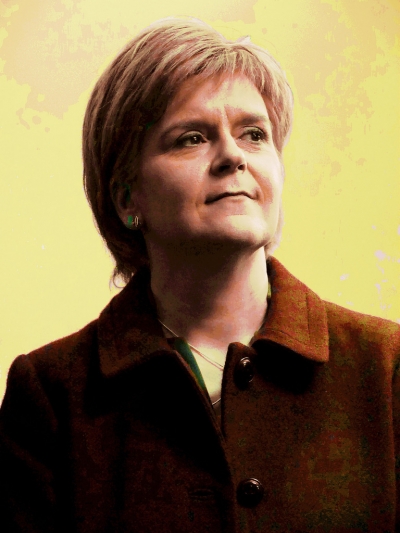When it was announced this morning that Theresa May would be making a surprise statement at Downing Street there was intense speculation as to the nature and content of her speech. Rumours ranged from direct rule in Northern Ireland or a second independence referendum in Scotland, to military action in the Korean peninsula or even a shock resignation.
As it was, the PM’s announcement of a General Election in just 50 days’ time took the entire political world by surprise, and politicians and commentators alike are still reacting to Ms May’s apparent u-turn.
As well as previously ruling out holding a snap General Election before 2020, just last month the Prime Minister rebuffed the Scottish Government’s calls for a second referendum on Scottish independence, stating that ‘now is not the time’. Emphasising that ‘all our energies should be focused on our negotiations with the EU’, the PM rationalised that another vote would simply increase instability and uncertainty.
She has since come to the conclusion that in order to secure a personal mandate as PM, and ensure her Government’s stability while she negotiates Brexit, the gamble of a snap election is worth the risk. With the most recent polls giving the Conservatives a lead of more than 17%, the PM is banking on the relative internal chaos of the Labour Party ensuring that she secures a significantly increased majority on June 8th.
So what do today’s developments mean for Scotland?
David Mundell, the Secretary of State for Scotland and the Conservatives’ only Scottish MP, has declared his intention to stand again in his constituency and appears confident that he could have a few more Tory colleagues in seven weeks’ time. The Scottish Tories’ leader, Ruth Davidson, has already sought to position her party as the only alternative to the SNP’s ‘divisive plan for a second referendum’, and this will likely be her key message throughout the campaign.
Meanwhile, Scotland’s First Minister, Nicola Sturgeon, has described the announcement as ‘one of the most extraordinary u-turns in recent political history’, and a ‘huge political miscalculation’. Ms Sturgeon is already positioning the election as a de-facto referendum on Scotland’s position in the UK, stating that it will reinforce the ‘democratic mandate’ for ‘giving the people of Scotland a choice on their future’.
If the SNP can hold on to most of their seats in Scotland while the Conservatives claim an increased majority across the UK, then Nationalists will claim an increasing level of divergence between Scotland and the rest of the country, adding weight to their calls for another independence referendum.
While the other main political parties in Holyrood – Scottish Labour, the Scottish Liberal Democrats, and the Scottish Greens – have all welcomed the opportunity to fight for more seats at Westminster, there are legitimate concerns about the impact on the upcoming local authority elections. Scotland goes to the polls to elect its councillors on May 4th, with some commentators expressing concern that the looming General Election will cause voter fatigue and result in an even lower turnout than normal.
Arguably the biggest question, however, is how today’s announcement will affect the ongoing independence debate. Will the SNP manifesto contain an explicit pledge for a second independence referendum? Will the 2017 General Election ultimately play into the SNP’s narrative calling for IndyRef2? Or will a resurgent Scottish Conservative Party make sufficient gains to quell the SNP’s calls for another referendum? Given the political developments of the last few years, the outcomes to all of the above appear far from certain.




